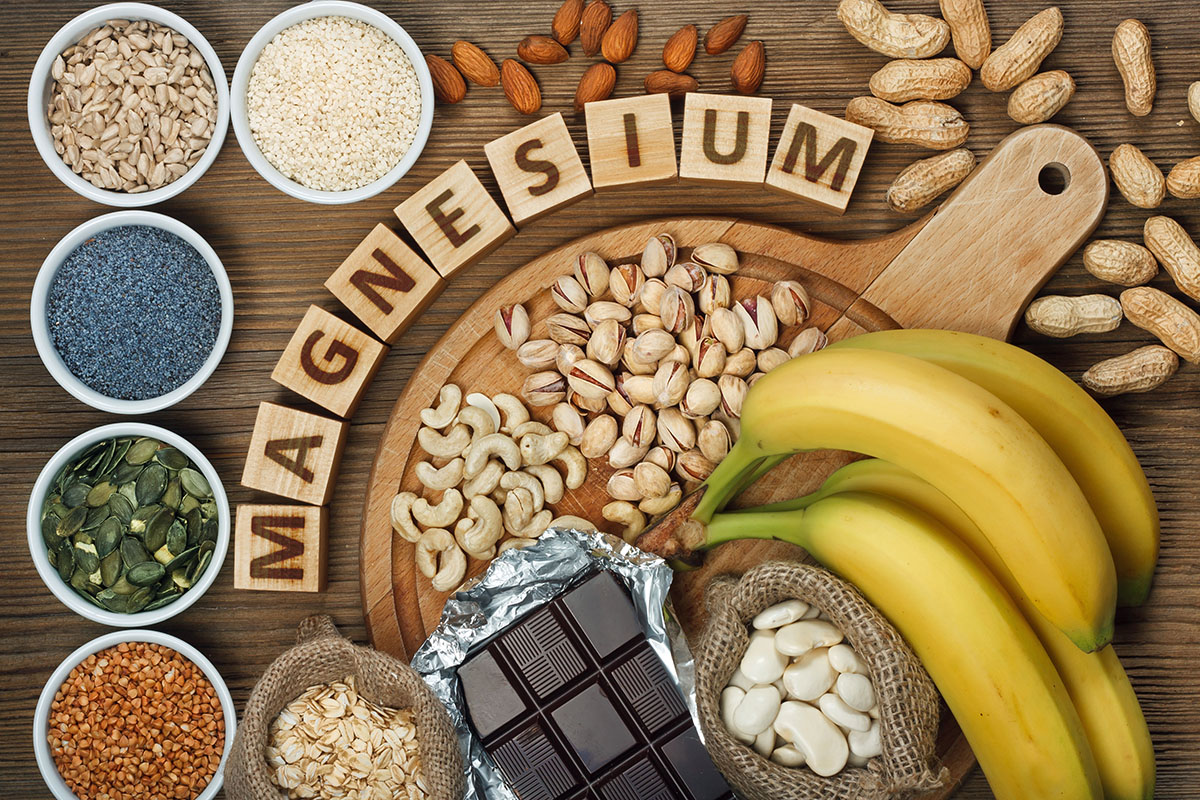Gallbladder Pain | Best Magnesium Supplements To Improve Gallbladder Function And Avoid Gallstone Pain

Magnesium is useful in helping improve gallbladder emptying by diminishing cell calcification and the formation of excessive bilirubin as a waste product. Excessive bilirubin is linked to the formation of calcium bilirubinate, the main component of calcified gallstones that may lead to gallbladder pain.
However, not all magnesium supplements are created equal. Some have higher absorption rates than others and some are better for the gallbladder than others.
In this article, we will show you what foods and supplements are best to correct magnesium deficiencies in those with gallbladder problems.
Foods Naturally High In Magnesium
Here is a list of foods found to be naturally high in magnesium. Measurements are listed per 100 grams of food being tested.
Foods Naturally High In Magnesium (per 100 grams)
Agar, Seaweed, dried – 770 mg
Rice bran, crude – 781 mg
Coriander leaf, dried – 694 mg
Chives, freeze-dried – 640 mg
Pumpkin seeds, dried – 535 mg
Cocoa, unsweetened, dry powder – 499 mg
Basil, dried – 422 mg
Flaxseed – 392 mg
Brazil Nuts, dried – 376 mg
Parsley, freeze-dried – 372 mg
Cumin seed – 366 mg
Sesame meal – 346 mg
Almond butter – 303 mg
Soy flour, defatted – 290 mg
Cashew nuts, roasted – 273 mg
Whey, dried, sweet – 176 mg
Leeks, freeze-dried – 156 mg
Bananas, dehydrated – 108 mg
Millet, puffed – 106 mg
Shallots, freeze-dried – 104 mg
Fish, salmon, raw – 95 mg
Onions, dehydrated flakes – 92 mg
Kale, scotch, raw – 88 mg
Best Magnesium Supplements For Those With Gallbladder Pain
In order for a healthy liver to produce bile, it converts bile salts from bile acids by conjugating amino acids such as glycine and taurine. These two amino acids are essential in the production of bile. They also lend bile a water-soluble quality. Conditions such as excessive protein and processed food consumption, malnutrition, excess weight, excessive use of medications and over exposure to chemical and toxic compounds help encourage the build up of fatty liver congestion as well as gallstone development that may eventually lead to gallbladder pain.
In recent studies glycine has been shown to significantly decrease liver injury (1). Glycine is also anti-inflammatory.
According to a 2006 study published in the “Journal of Pharmaceutical Sciences” the reason why glycine is commonly found as an ingredient in antacids is because of its ability to balance the PH in the digestive tract.
On the other hand, dietary taurine has been found to inhibit cholesterol gallstone formation as well as lower cholesterol mass of the liver. (2) Taurine helps the binding of bile salts and accelerates their elimination.
Without the necessary nutritional liver support, healthy gallbladder function is impossible. The amino acids glycine and taurine help do this. Magnesium, when combined with the above amino acids, can be much more effective in the prevention of gallstone formation.
Therefore, when it comes to improving gallbladder function there are two magnesium supplements that rank high in the list of magnesium supplements for those who would like to improve gallbladder function and prevent gallstones.
Magnesium taurate – Magnesium taurate contains no laxative properties but it is a highly absorbable form of magnesium. Because magnesium helps relax the heart muscle and the blood vessels that feed the heart so they may deliver more blood to the heart tissues, this supplement is commonly taken by those with cardiovascular issues. In addition taurine is an amino acid that enhances the quality of heart contractions and feed cardiac muscles, so magnesium taurate is an ideal choice to guard against arrhythmias or the damage caused by heart attacks as well as prevent gallbladder pain by helping diminish the risk of cholesterol gallstone formation. In general the amount Mg present in this supplement is small, but it is highly absorbable.
Magnesium glycinate – Magnesium glycinate is a safe option for correcting magnesium long-term deficiency without inducing diarrhea. An added bonus with glycine is that it is an amino acid/neurotransmitter that induces relaxation. Because magnesium can also induce a relaxation, when you combine the two, one can achieve a higher state of mental calm and relaxation.
There are other magnesium supplements that are quite effective as well:
Magnesium malate – Magnesium malate is a supplement that combines magnesium with malic acid. Malic acid is a fruit acid that is naturally found in most cells in the body has used for decades to soften and eliminate gallstones. Malic acid is found in high concentrations in apples, apple juice, apple cider vinegar. Magnesium malate is highly absorbable because it can be easily broken down.
Magnesium Citrate – Magnesium citrate rates among the most easily absorbed magnesium supplements in the market today despite the fact that by weight it has less magnesium than its counterparts. Mg is bonded to citric acid and this increases its absorption rate. Because magnesium citrate is inexpensive and easily absorbed it has become one of the most common forms of Mg on the commercial market. Citric acid has a mild laxative effect, so magnesium citrate is often found in laxative preparations. It is useful for those with constipation problem, but unsuitable for those with loose bowel movements.
Not sure which one to get? Try a combination of all of them. Magnesium deficiency is vastly endemic in most western countries, so your body will most likely welcome the extra magnesium. The chance is you are highly deficient in magnesium already.
References:
(1) Froh et al. Dietary glycine blunts liver injury after bile duct ligation in rats. World Journal of Gastroenterology, 2008; 14 (39): 5996 DOI: 10.3748/wjg.14.5996
(2) Yamanaka Y, Tsuji K, Ichikawa T, Nakagawa Y, Kawamura M. Effect of dietary taurine on cholesterol gallstone formation and tissue cholesterol contents in mice. J Nutr Sci Vitaminol (Tokyo). 1985 Apr;31(2):225-32.



